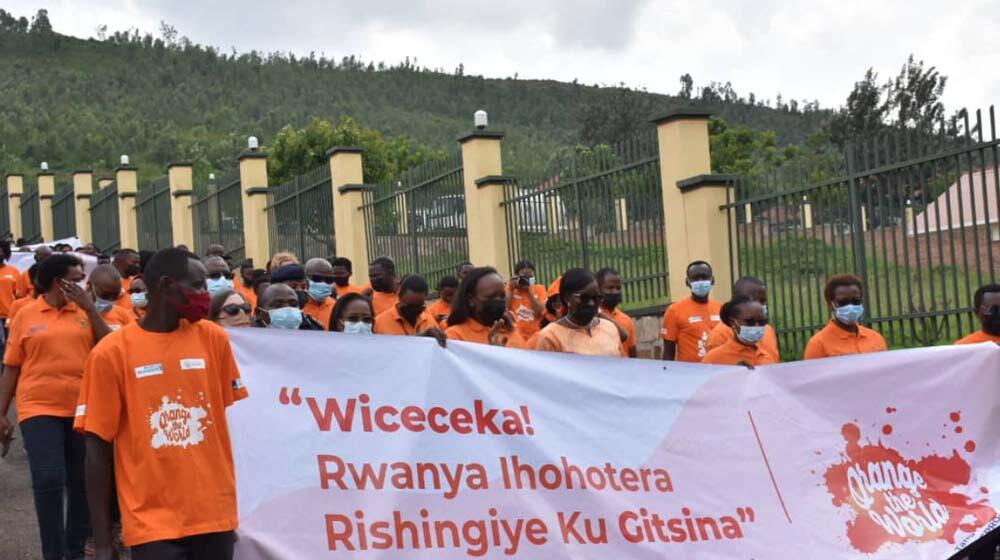Violence against women continues to be an obstacle to achieving equality, development, and peace as well as to the fulfilment of women’s and girls’ human rights. The promise of the Sustainable Development Goals (SDGs) to leave no one behind cannot be fulfilled without putting an end to violence against women and girls.
On this year’s International Day for the Elimination of Violence Against Women which marks the beginning of the 16 of activism, UNFPA called upon governments and allies to act now to end violence against women and girls in all their diversity.
In her statement, the UNFPA Executive Director Dr Natalia Kanem emphasized that it is important that we radically transform how we view the rights of women and girls to make choices about their bodies and to live free from violence. This means disrupting harmful social and gender norms and dismantling every single barrier to these rights, starting with the most marginalized people who are subjected to the most acute violence and discrimination.
“Violence against women and girls is completely preventable. We can stop this crisis by acting in solidarity with the growing numbers of people who are standing up and saying “enough”. Everyone has the right to bodily autonomy and to live in safety and security. Dr Kanem Stated.
In Rwanda, gender-based and domestic violence has consistently been on the rise, over the past 7 years. According to Rwanda DHS 2019-2020, the percentage of women who have experienced physical violence since age 15 increased from 35% in 2014-15 to 37% in 2019-20 while spousal violence (intimate partner violence) has increased from 40% in 2015 to 46% in 2020. Teenage pregnancies also remain an alarming issue.
On 25th November 2002, the Government of Rwanda through the Ministry of Gender and Family promotion in collaboration with One UN family in Rwanda and other partners, joined the community of Nyamasheke District to observe the International Day for the Elimination of Violence against Women and Girls and launch of 16 days of activism campaign, under the theme “Unite, for a Nation free from Violence”.
The 16-days of activism campaign is an opportunity to raise awareness of violence against women and girls and mobilize the general public and the community to understand their contribution to combating GBV and Defilement and to the reduction of teenage pregnancy.
As part of this year’s campaign and with UNFPA Rwanda support, The Ministry of Gender and Family planning will conduct a series of awareness activities including a training session with the media to engage and educate media personalities and social media influencers about deeds that promote and perpetuate Gender-Based Violence through media and the role of media in addressing this issue.
The activities also include; colouring different places in Orange to emphasize the message of #Ending GBV in Rwanda, organizing live TV and radio talk shows, and press conferences, and engaging women leaders, and young women in leadership positions to provide the messages (in form of letters) on their power and potential to protect themselves from a form of GBV among other activities.
“We thank our partners for the continuous support and contributions towards the efforts of the government of Rwanda in creating a better society free from any form of GBV. There cannot be any single or unique approach to solve this issue but rather a multisectoral and collaborative approach toward our common goal.” Prof. Jeannette BAYISENGE, Minister of Gender and Family Promotion at the launch of the 16 days of activism campaign, in Nyamasheke.


